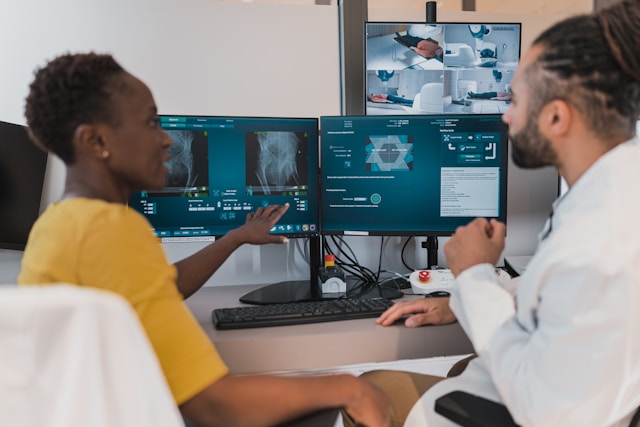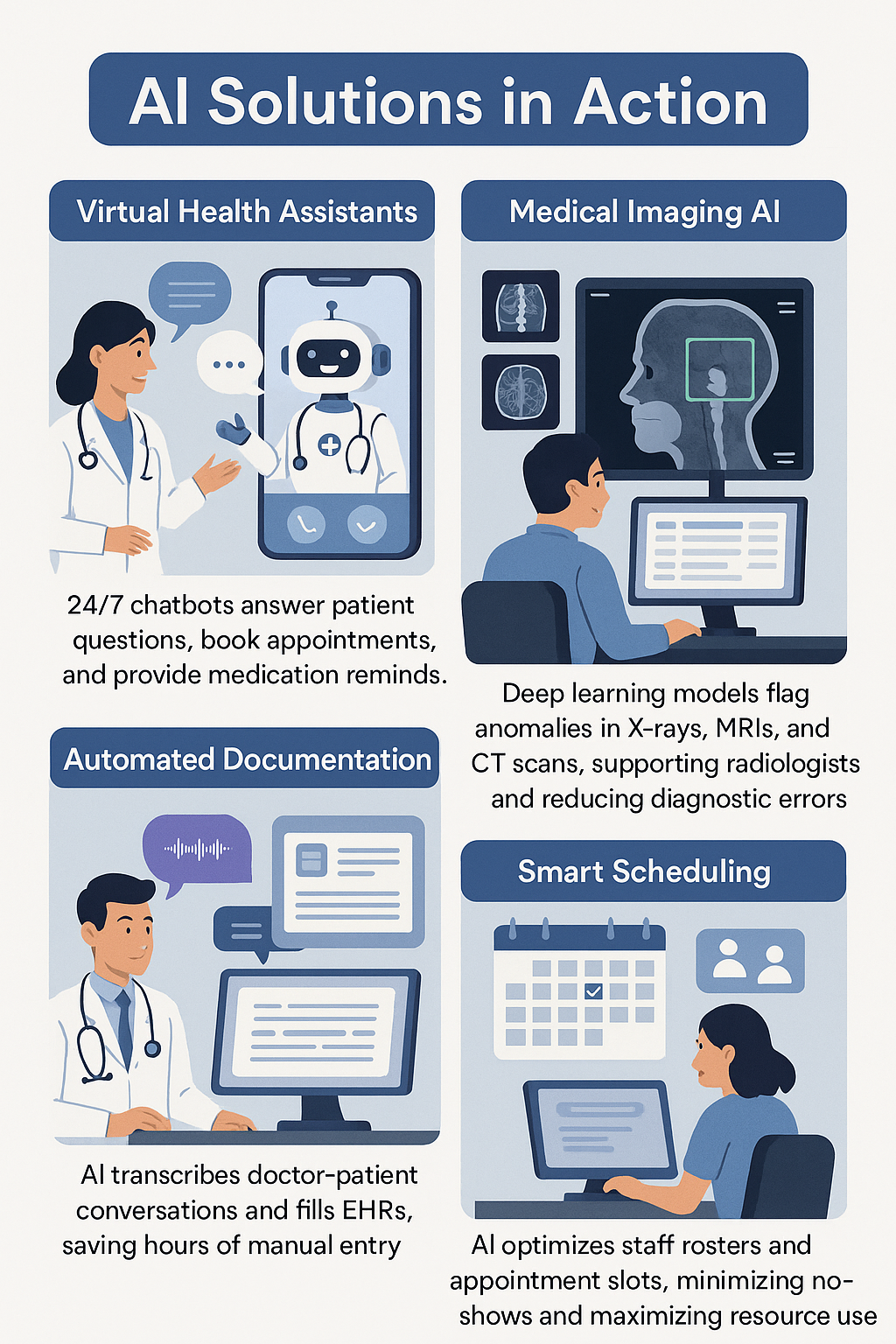Healthcare AI Automation Transforming Patient Care & Operations
Use Case-Driven Insights for Modern Healthcare
Explore how AI automation is revolutionizing healthcare: from patient triage and diagnostics to workflow automation and predictive analytics. Real-world use cases, measurable results, and a roadmap for digital health transformation.




